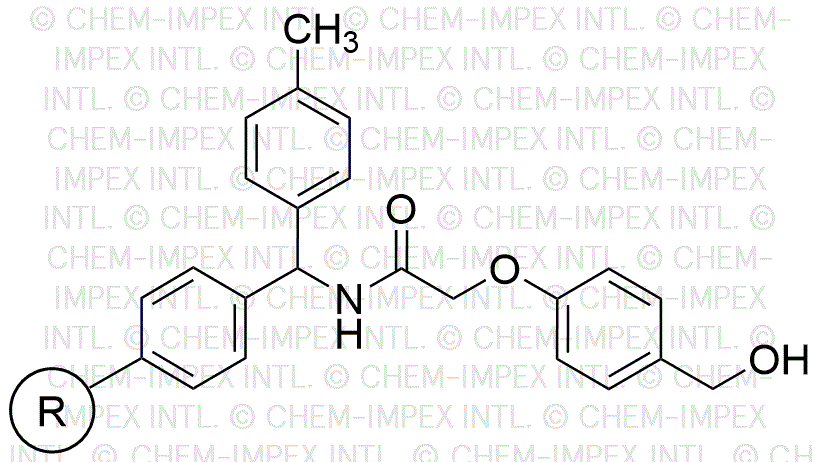HMPA-MBHA resin (0.6 - 1.2 mmol/g, 200 - 400 mesh) is widely utilized in research focused on:
- Peptide Synthesis: This resin serves as a solid support for synthesizing peptides, allowing for efficient coupling and deprotection steps, which enhances yield and purity.
- Drug Discovery: In pharmaceutical research, it is used to create diverse compound libraries, facilitating high-throughput screening for potential drug candidates.
- Bioconjugation: The resin can be employed to attach biomolecules, such as antibodies or enzymes, to surfaces or other molecules, improving the effectiveness of diagnostic and therapeutic agents.
- Environmental Applications: It is utilized in the removal of pollutants from water, acting as a medium for capturing and isolating contaminants due to its high binding capacity.
- Material Science: The resin is valuable in developing composite materials, where it enhances the mechanical properties and stability of polymers.
General Information
Properties
Safety and Regulations
Applications
HMPA-MBHA resin (0.6 - 1.2 mmol/g, 200 - 400 mesh) is widely utilized in research focused on:
- Peptide Synthesis: This resin serves as a solid support for synthesizing peptides, allowing for efficient coupling and deprotection steps, which enhances yield and purity.
- Drug Discovery: In pharmaceutical research, it is used to create diverse compound libraries, facilitating high-throughput screening for potential drug candidates.
- Bioconjugation: The resin can be employed to attach biomolecules, such as antibodies or enzymes, to surfaces or other molecules, improving the effectiveness of diagnostic and therapeutic agents.
- Environmental Applications: It is utilized in the removal of pollutants from water, acting as a medium for capturing and isolating contaminants due to its high binding capacity.
- Material Science: The resin is valuable in developing composite materials, where it enhances the mechanical properties and stability of polymers.
Documents
Safety Data Sheets (SDS)
The SDS provides comprehensive safety information on handling, storage, and disposal of the product.
Product Specification (PS)
The PS provides a comprehensive breakdown of the product’s properties, including chemical composition, physical state, purity, and storage requirements. It also details acceptable quality ranges and the product's intended applications.
Certificates of Analysis (COA)
Search for Certificates of Analysis (COA) by entering the products Lot Number. Lot and Batch Numbers can be found on a product’s label following the words ‘Lot’ or ‘Batch’.
Número de catálogo
Número de lote/lote
Certificates Of Origin (COO)
This COO confirms the country where the product was manufactured, and also details the materials and components used in it and whether it is derived from natural, synthetic, or other specific sources. This certificate may be required for customs, trade, and regulatory compliance.
Número de catálogo
Número de lote/lote
Safety Data Sheets (SDS)
The SDS provides comprehensive safety information on handling, storage, and disposal of the product.
DownloadProduct Specification (PS)
The PS provides a comprehensive breakdown of the product’s properties, including chemical composition, physical state, purity, and storage requirements. It also details acceptable quality ranges and the product's intended applications.
DownloadCertificates of Analysis (COA)
Search for Certificates of Analysis (COA) by entering the products Lot Number. Lot and Batch Numbers can be found on a product’s label following the words ‘Lot’ or ‘Batch’.
Número de catálogo
Número de lote/lote
Certificates Of Origin (COO)
This COO confirms the country where the product was manufactured, and also details the materials and components used in it and whether it is derived from natural, synthetic, or other specific sources. This certificate may be required for customs, trade, and regulatory compliance.


